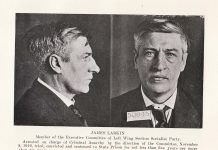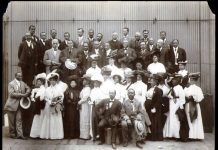
Socialistisk Biblioteks Tidslinje med links til begivenheder og personer i 1929.
Se også Index over personer, organisationer/partier og værker (som bøger, malerier, mm.), steder, begivenheder, mv., der er omtalt på hele Tidslinjen, titler og indhold på emnelisterne osv.
Bladliste
Nye blade 1929:
- Forsøgsscenen. Udg. af Studentersamfundet.
- Lynet. … i kampen mod fagforeningsdiktatorerne. Udg. af oppositionelle barbersvende.
- Den røde Front. .. mod de imperialistiske krigsforberedelser og fascismen. Udg.: Rødt Arbejderværn
- Studentersamfundet Clarté.
- Vi Gymnasiaster. Organ for Dansk Gymnasiastforbund.
Se Arbejderhistorisk bladliste, under året 1929 (scroll ned)
12. januar 1929
Den skotske moralfilosof Alasdair MacIntyre fødes i Glasgow, Skotland. Har en aktiv fortid i britiske kommunistparti og antistalinistiske venstregrupper. Fra 1980’erne katolsk filosof.
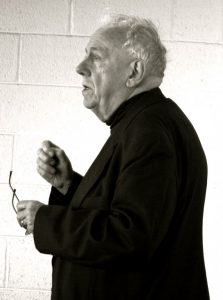
Se:
- Alasdair MacIntyre (Wikipedia.org)
- Alasdair Chalmers MacIntyre (1929- ). By Christopher Stephen Lutz (Internet Encyclopedia of Philosophy)
- Alasdair MacIntyre (Marxists Internet Archive). Articles from International Socialism (1960-1963).
Articles:
The Left should take Alasdair MacIntyre seriously. By Matt McManus (Jacobin, September 9, 2024). “Alasdair MacIntyre’s original critique of liberal modernity has won followers on the Left and the Right. His account of how capitalism has undermined the conditions of human flourishing deserves the serious attention of socialists.”
The anti-modern Marxism of Alasdair MacIntyre. By Samuel McIlhagga (Jacobin, November 9, 2022). Review of Émile Perreau-Saussine, Alasdair MacIntyre: An Intellectual Biography (University of Notre Dame Press, 2022, 216 p.) “Over seven decades, the philosopher Alasdair MacIntyre has advanced one of the most radical critiques of capitalist modernity. But in opposing modernity, he has denied a key insight of Marxism: socialism must develop, not reject, capitalism’s dynamism.”
Ethics and the conflicts of modernity. By Joe Stapleton (Against the Current, Issue 200, May-June 2019). “MacIntyre’s lifelong project was the discovery, and later recovery, of what he believed had been lost in modern society: some coherent idea of what it meant for humans to live a good life. At least one factor behind his abandonment of the Marxist discourse was his disappointment with Marxism’s inability to recognize the deficiencies of its own moral life.”
Alasdair MacIntyre as a Marxist and as a critic of Marxism (pdf). By Paul Blackledge (American Catholic Philosophical Quarterly, Vol.88, No.4, September 2014, p.705-724). “This essay reconstructs Alasdair MacIntyre’s engagement with Marxism with a view both to illuminating the co-ordinates of his mature thought and to outlining a partial critique of that thought.”
MacIntyre’s forgotten answers. By Chris Harman (International Socialism, Issue 121, Winter 2011). Review of Paul Blackledge and Neil Davidson (eds), Alasdair MacIntyre’s Engagement with Marxism: Selected Writings 1953–74 (Brill, 2008, 443 p.).
A philosopher’s contribution. By Tyler Zimmer (International Socialist Review, Issue 80, November 2011). Review of Paul Blackledge and Kelvin Knight, Virtue and Politics: Alasdair MacIntyre’s Revolutionary Aristotelianism (University of Notre Dame Press, 2011, 376 p.) + Paul Blackledge and Neil Davidson, Alasdair MacIntyre’s Engagement with Marxism: Selected Writings 1953–1974 (Haymarket Books, 2009, 448 p.)
Alasdair MacIntyre: of Marx and morality (Socialist Worker, Issue 1995, 8 April 2006). “Paul Blackledge looks at a vital contribution to socialist humanism.”
The ethical dance. By Peter Sedgwick (Socialist Register 1982, p.259-267). Review of Alasdair MacIntyre’s After Virtue: A Study in Moral Theory (University of Notre Dame Press, 1981). “MacIntyre was one of the outstanding socialist intellectuals of that fertile period in British intellectual and political life [in the ten years up to 1968].”
Marxism and Religion. By Alasdair MacIntyre (Church Life Journal, January 25, 2019). An excerpt of chapter 7 from Alasdair MacIntyre, Marxism and Christianity (originally published in 1968, many years before he converted to Catholicism). “Christianity remains irremediably tied to a social content it ought to disown. Marxism as historically embodied phenomenon may have been deformed in a large variety of ways. But the Marxist project remains the only one we have for reestablishing hope as a social virtue.”
15. januar 1929
Martin Luther King fødes i Atlanta, Georgia. (Myrdes 4. april 1968 i Memphis, Tennessee).
Biografier etc:
- Martin Luther King, Jr. (Leksikon.org)
- Martin Luther King (Denstoredanske)
- Martin Luther King (Wikipedia.dk) + Martin Luther King, Jr. (Wikipedia.org). “This article is part of a series about Martin Luther King Jr.”
- Martin Luther King (Spartacus Educational)
- King Encyclopedia (Stanford University)

Artikler:
Martin Luther King forstod, at hvide og sorte arbejdere måtte kæmpe sammen. Af Jens Riis Bojsen (Socialistisk Arbejderavis, nr.380, 18. juni 2020). “En tæt alliance mellem sorte og hvide indenfor betydelige amerikanske fagforbund anså den sorte borgerrettighedsleder Martin Luther King, som helt central. Således fik han en meget afgørende opbakning fra bilarbejderforbundet og slagteriarbejderne i 60’erne under årtiets største kamp i USA.”
Den King de ikke vil fejre. Af Brian Jones (Socialistisk Information, 7. april 2018). “I 1967 udgav Martin Luther King bogen Kaos eller fællesskab? Den indeholdt forslag til ‘anden fase’ i de sortes kamp … med et perspektiv for en fremtidig organisering, der ville ryste den amerikanske kapitalisme i sin grundvold, hvis den blev ført ud i livet.”
King’s real view of Malcolm X. By Malik Miah (Against the Current, Issue 229, March-April 2024). “An important revelation King: A Life is the author’s discovery of King’s real view of Malcolm X. Eig’s research exposes a false narrative circulated in political and academic circles. As Eig reveals, King and Malcolm were more similar in outlook than most people believed.”
Martin Luther King Jr’s forgotten 1962 speech on Civil Rights Unionism (Jacobin, September 4, 2023). “MLK regarded progressive unions as bulwarks of the civil rights movement. In this rousing 1962 speech to the National Maritime Union, he linked the democratic struggles of workers and black people and ended by quoting the “beautiful words” of Eugene Debs.”
Martin Luther King understood solidarity. By Michael K. Honey (Jacobin, June 21, 2023). Review of Jonathan Eig, King: A Life (Farrar, Straus and Giroux, 2023, 688 p.). “[The book] stirs exhilaration and visceral pain at the unexpected triumphs and vicious violence that King and the freedom movement endured. But it largely leaves out a key piece of King’s legacy: his commitment to labor.” Dansk udgave: King – et liv (Klim, 2023, 659 s.).
See also review by Malik Miah: Leader in a time of change (Against the Current, Issue 229, March-April 2024).
MLK was an exemplar of a black socialist tradition. By Sylvie Laurent (Jacobin, April 4, 2023). “Martin Luther King Jr had a rich relationship with socialist politics: he sympathized with but ultimately rejected Marxism, and he settled on a Christian socialism that viewed the struggle against racism and class oppression as fundamentally intertwined.”
55 years after MLK’s death, his radical vision should galvanize our struggles today. By Michael K. Honey (Jacobin, April 4, 2023). “Martin Luther King Jr was assassinated 55 years ago today while in Memphis standing in solidarity with striking sanitation workers. His life and radical words stand as a beacon of hope, urging us to keep fighting for economic and racial justice.”
MLK Day should be about continuing Dr. King’s radical project. By Daniel T. Fleming (Jacobin, January 16, 2023). “On Martin Luther King Jr Day, rather than embracing a sanitized, deradicalized King, we remember a committed foe of not only racism, but economic inequality and militarism.” Extract from Living the Dream: The Contested History of Martin Luther King Jr. Day (The University of North Carolina Press, 2022, 336 p.).
MLK was a radical who hated not only racial subordination but class exploitation (Jacobin, April 4, 2021). An interview with Sylvie Laurent: “Throughout his adult life, Martin Luther King Jr believed in striking down not only racial apartheid but class exploitation. That twin commitment was embodied in his final effort: the often-forgotten Poor People’s Campaign.”
Remember: The FBI declared war on and tried to destroy Martin Luther King. By Chip Gibbons (Jacobin, January 30, 2021). “In all the celebrations of Martin Luther King’s life, we tend to forget something very important about our country’s greatest civil rights leader: when he was alive, institutions of the US state, especially the FBI under J. Edgar Hoover, constantly harassed, surveilled, and attempted to destroy King.”
The true story of how the FBI smeared Martin Luther King. By Ken Olende (Socialist Worker, Issue 2737, 10 January 2021). “Using newly revealed documents, MLK/FBI delves into how the US ruling class sought to undermine the Civil Rights movement.”
Martin Luther King Jr. and the fight for social equality. By Tom Mackaman and Niles Niemuth (World Socialist Web Site, 23 January 2020). “On Monday, the United States observed Martin Luther King, Jr. Day, a holiday commemorating the birth of the civil rights leader. Since its inception in the 1980s, the holiday has aimed to turn King into a harmless icon of social conciliation, while obscuring his radical criticisms of America capitalism and militarism.”
Dr. King and Mr. Garrow. By Patrick Martin (World Socialist Web Site, 4 June 2019). “… Garrow has lent his reputation and standing to a political smear campaign, writing a diatribe against Dr. King published Thursday in the right-wing British magazine Standpoint.” See also Daniel Chard: When the FBI targeted the Poor People’s Campaign (Jacobin, August 12, 2019). “An FBI scholar argues that recently unearthed surveillance documents aren’t proof of anything about Martin Luther King.”
When King was dangerous. By Alex Gourevitch (Jacobin, January 21, 2019). “Martin Luther King Jr is remembered as a person of conscience who only carefully broke unjust laws. But his militant challenges to state authority place him in a much different tradition: radical labor activism.”
If only we could revive the fruitful tension between Martin Luther King and Malcolm X. By Kenan Malik (The Guardian, 8 April 2018). “Reflections on Dr King’s death have overlooked how his liberal universalism and Malcolm X’s separatism gave each other strength.”
The political philosophy of Martin Luther King Jr: An interview with Brandon M. Terry and Tommie Shelby (Jacobin, April 4, 2018). “Martin Luther King Jr wasn’t just a brilliant orator and organizer. He was also a groundbreaking thinker.”
Nonviolence and social change. By Martin Luther King Jr (Jacobin, April 4, 2018). “In 1967, Martin Luther King Jr delivered a lecture calling on the “dispossessed of this nation” to revolt in nonviolent struggle. We reprint it here in full.”
Martin Luther King. By Nike Johnson and Adeola Johnson (Socialist Review, Issue 434, April 2018). Review of Yuri Prasad, A Rebel’s Guide To Martin Luther King (Bookmarks, 2018, 64 p.). “… Yuri Prasad correctly argues that it is essential to rescue King from the hagiographers.”
Reclaim Martin Luther King the radical. By Yuri Prasad (Socialist Worker, Issue 2595, 10 March 2018). “Liberals have tried to sanitise Martin Luther King ever since his death 50 years ago. But King was a radical who blamed capitalism for racism, poverty and war.”
MLK: To the Promised Land (Against the Current, Issue 193, March-April 2018). Charles Williams interviewing Michael Honey, author of the new study, To the Promised Land: Martin Luther King and the Fight for Economic Justice (W.W. Norton, 256 p.), to be published on the 50th anniversary of King’s April 4, 1968.”
A strike for dignity and civil rights in Memphis. By Brian Jones (SocialistWorker.org, February 12, 2018). “We should never forget that King died in a struggle for public-sector unionization …”
Restoring King. By Thomas J. Sugrue (Jacobin, 16 January 2017). “There is no figure in recent American history whose memory is more distorted than Martin Luther King Jr.”
When King broke the silence on Vietnam. By Brian Jones (SocialistWorker.org, April 4, 2017). “Fifty years ago Martin Luther King gave a speech that rocked U.S. society–by connecting the struggle for civil rights with the need to oppose militarism and capitalism.”
Remembering Martin Luther King’s last, most radical book. By Peter Kolozi and James Freeman (New Politics, Issue 62, Winter 2017). Review of Where Do We Go from Here: Chaos or Community (Beacon Press, 2010/1967). “The book is perhaps the most radical statement of King’s analysis, criticism, and vision for change.”
The evolution of Dr. King. By Lee Sustar (Jacobin:Reason in Revolt, 18 January 2016). “By the end of his life, Martin Luther King Jr was an avowed socialist.”
Restoring King. By Thomas J. Sugrue (Jacobin: Reason in Revolt, 18 January 2016). “There is no figure in recent American history whose memory is more distorted than Martin Luther King Jr.”
The assassination of Martin Luther King and the peace movement: the suppression of his anti-war message. By Ajamu Baraka (CounterPunch, April 4, 2013). “When Dr. King finally opposed the war on Vietnam he incurred the wrath of liberals in the Johnson Administration, the liberal philanthropic community, and even a significant number of his colleagues in the clergy.”
A most reliable ally: Martin Luther King, Jr. and the unions. By Elly Leary (Monthly Review, Vol.63, No.10, March 2012. Review of Martin Luther King, Jr., edited with introductions by Michael K. Honey, All Labor Has Dignity (Beacon Press, 2011)
The other America (SocialistWorker.org, March 14, 2012). “Forty-four years ago on March 14, Martin Luther King Jr. gave a speech at Grosse Pointe High School outside Detroit.”
The new monument on the Mall. By Kelly Quinn (Against the Current, Issue 157, March/April 2012). “The Martin Luther King, Jr. Memorial is the first devoted to an African American individual on the Washington Mall, a solemn civic space heretofore reserved for presidents and warriors.”
Martin Luther King and the fate of the civil rights movement. By Patrick Martin (World Socialist Web Site, 26 August 2011). “The civil rights movement led by Martin Luther King Jr. had a major effect on American society.”
The King they won’t celebrate. By Brian Jones (SocialistWorker.org, January 19, 2009). “King presents a radical analysis of the origin and nature of racism, and a perspective for future organizing that would, if carried out, shake American capitalism to its core.”
Unfinished business: Martin Luther King in Memphis. By Brian Kelly (International Socialism, Issue 118, Spring 2008). “… he spent his final days … standing shoulder to shoulder with striking black sanitation workers (bin men), among the lowest paid workers in Memphis …”
Forty years on, some lessons from the life – and death – of Dr. Martin Luther King Jr. By Patrick Martin (World Socialist Web Site, 7 April 2008). “… he was the leader of a mass popular movement that for more than a decade challenged the barbaric racial oppression in the American South.”
Martin Luther King and the fight against racism in the US (Socialist Worker [UK], Issue 2095, 5 April 2008). “Forty years ago this week the Civil Rights Movement lost its leading champion. Yuri Prasad explains why King grew more radical with time.”
Martin Luther King’s last fight. By Brian Jones (International Socialist Review, Issue 58, March–April 2008). “In the last year of his life, King spoke, fought, and organized, not for peace and love in the abstract, but for the billions of dollars needed to solve the economic problems of African Americans.”
Martin Luther King: Fortieth anniversary of his assassination. By George Binette (Permanent Revolution, March 2008; online at Internet Archive). “To King’s credit, however, was his preparedness to organise a mass movement, whereas Malcolm X’s Nation of Islam more or less completely abstained from mass action.”
The making of Jericho Road (Against the Current, Issue 132, January-February 2008). An interview with Michael Honey, author of Going Down Jericho Road: The Memphis Strike, Martin Luther King’s Last Campaign (W.W. Norton, 2007, 619 p.).
Israel’s apologists and the Martin Luther King Jr. hoax. By Fadi Kiblawi and Will Youmans (The Electronic Intifada, 18 January 2004). “The context behind Dr. King’s authentic statements on Zionism was unique to a particular domestic political moment in order to sustain a fragile political coalition.”
The real MLK: The part of King’s legacy that politicians won’t celebrate. By Alan Maass (Socialist Worker [US], Issue 441, February 21, 2003). “The truth is that Martin Luther King’s commitment to justice–and his determination to fight for it–sets him apart from everyone in the Washington establishment today .”
Martin Luther King: Christian core, Socialist bedrock. By Paul Le Blanc (Against the Current, No.96, January-February 2002). “I will argue here that his outlook represents a remarkable blending of Christian, democratic, and socialist perspectives.”
King, Malcolm, and the future of the Black Revolution (Viewpont Magazine, January 19, 2015). “James Boggs’s essay on Martin Luther King’s assassination was published in the Italian collection Lotta di classe e razzismo (Laterza, 1968), and then appeared in Racism and the Class Struggle: Further Pages from a Black Worker’s Notebook (Monthly Review, 1970).
Bøger/Books
Carl Pedersen: “Martin Luther King jr.: Profeten”. I: Amerikanske tænkere: 14 intellektuelle der ændrede USA, red. Astrid Nonbo Andersen og Christian Olaf Christensen (Informations Forlag, 2016, s.299-319 + 348-349)
Godfrey Hodgson: Martin Luther King: Historien om en drøm (Informations Forlag, 2010, 292 sider)
Taylor Branch: Parting the Waters: America in the King Years, 1954–1963 (Simon & Schuster, 1988) + Pillar of Fire: America in the King Years, 1963–1965 (Simon & Schuster, 1998) + At Canaan’s Edge: America In the King Years, 1965–1968 (Simon & Schuster, 2006)
The King years chronicled. Review by Mark Higbee (Against the Current, No.84, January-February 2000)
A nation at Canaan’s edge. Review by Mark Highbee (Against the Current, No.129, July-August 2007)
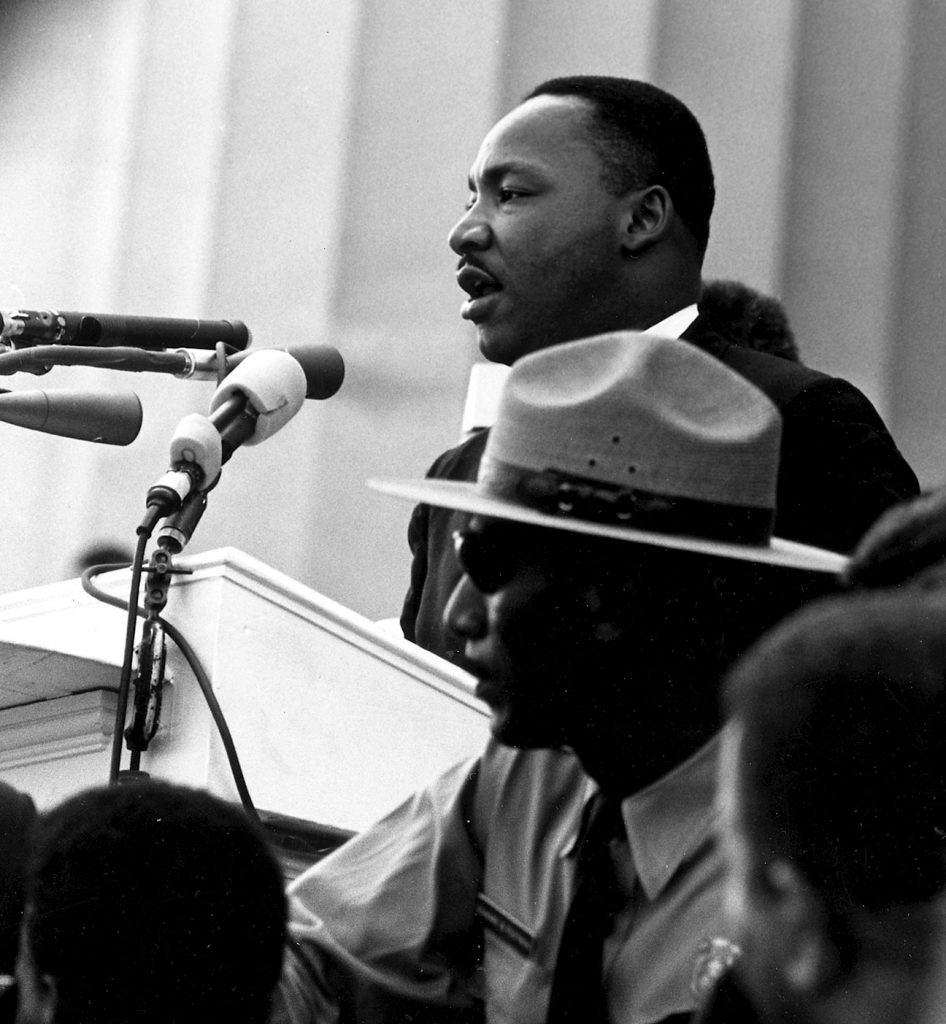
Se også på Socialistisk Bibliotek:
- Tidslinjen 4. april 1968 om mordet på Martin Luther King.
- Tidslinjen 28. august 1963, “I have a dream”-talen.
- Linkboxen Black Power: Historie og personer
Martin Luther King, Jr. made the comment that the U.S. government [was/is] “the greatest purveyor of violence in the world today”. This was in context to a speech delivered on April 4, 1967 at Riverside Church in New York City – exactly one year before his untimely death. (YouTube.com; 56:48 min.). See the speech with text.
12. februar 1929
Lev Trotskij ankommer pr. båd fra Odessa i tvunget exil til Konstantinopel (fra 1930: Istanbul) i Tyrkiet. Og får bopæl på øen Prinkipo/Büyükada til 1933. Efter ophold i Frankrig 1933-35, får han kortvarigt asyl i Norge.
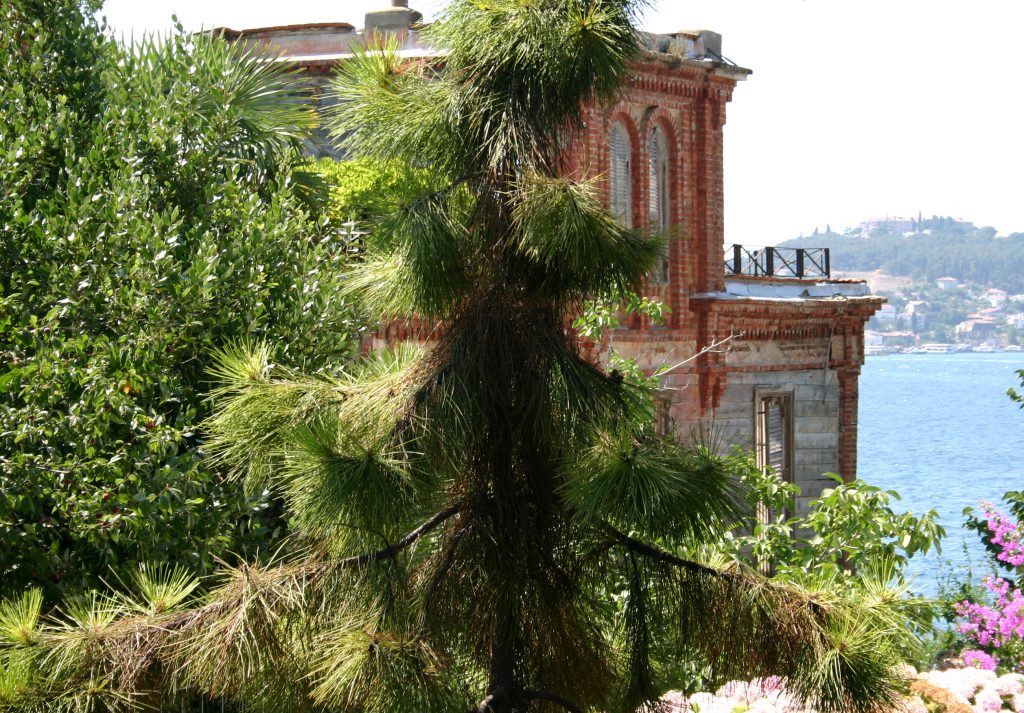
Links:
- Esteban Volkov: Return to Prinkipo. By Greg Oxley (In Defence of Marxism, 1 February 2004)
- The Exile of Trotsky. by J. C. Mariaegui. (Variedades, February 23 1929; online at Marxists Internet Archive)
- My Life. (1930) By L.D. Trotsky. Chapter 44: The Deportation & Chapter 45: The planet without a visa (Marxists Internet Archive)
Se også på Socialistisk Bibliotek:
- Tidslinjen 18. juni 1935 om Trotskijs ophold i Norge
- Tidslinjen 7. november 1879 om Trotskijs liv og værk.
30. april 1929
Venstremanden (Tugthus-lovens fader) Madsen-Mygdal overlader roret til Staunings 2. regering.
12. maj 1929
Den ungarnske filosof Agnes heller fødes i Budapest. (Dør 19. juli 2019, se denne, i Balatonalmádi).
1. juni 1929
Socialpolitikeren Bent Rold Andersen fødes i København. (dør 19. juli 2019, se denne dato)
12. juni 1929
Den jødiske pige Anne Frank fødes i Frankfurt am Main, pågribes i skjulestedet i Amsterdam 4. august 1944 og dør marts 1945 i Bergen-Belsen.

Se på Socialistisk Bibliotek:
- Tidslinjen: 25. juni 1947, om udgivelsen af Anna Franks Dagbog.
18. juni 1929
Den tyske filosof og “neo-marxistiske” kritiker Jürgen Habermas fødes 18. juni 1929 i Düsseldorf.

Se:
- Habermas, Jürgen (Leksikon.org)
- Jürgen Habermas (Denstoredanske.dk)
- Jürgen Habermas (Wikipedia.org)
- Jürgen Habermas Archive (Marxists Internet Archive)
År 30: Tysklands anden chance. Af Jürgen Habermas (Kritisk Debat, 15. december 2020). “Merkels europapolitiske kovending og den tyske genforeningsproces.”
Habermas: A Biography. By J.D. Evans (Marx & Philosophy Review of Books, 21 July 2020). Review of Stefan Müller-Doohm’s book (Polity, 2016, 598 p.). “Müller-Doohm does not offer full or extensive analyses of Habermas’ ideas, but that is not the task of a biography, which should put those ideas in historical and personal context. At this, Müller-Doohm succeeds admirably.”
America and the world. A conversation with Jürgen Habermas with
Eduardo Mendieta (Logos, Issue 3:3, Summer 2004)
A contribution to the critique of Jürgen Habermas. By Darshana Medis (World Socialist Web Site, 27 July 1999). With link to another critism (on Balkan War). “It’s not incorrect to regard Habermas as a forerunner of Post-Modernism, or the last (contemporary) representative of Modernism.”
Jürgen Habermas’s critique of Marxism. By Anthony Flood (Science & Society, Vol.XLI, No.4, Winter 1977-1978, p.448-64; online at Anthonyflood.com). “Jürgen Habermas’s assessment of Marxism consists of both a defense and a critique.”
Se også:
- Frankfurt School (Wikipedia.org)
- The Frankfurt School and ‘Critical Theory’ (Marxists Internet Archive)
13. august 1929
Kranføreren Anna Walentynowicz, hvis fyring på Lenin-skibsværftet i Gdansk, udløste starten på de polske strejker i august 1980, fødes i Równe. (Dør ved flyulykke sammen med bl.a. Polens præsident nær Smolensk i Rusland, den 10. april 2010, se denne)
24. august 1929
Formand for PLO og præsident for selvstyreområdet Yassir Arafat fødes i Cairo, Egypten (dør 11.11.2004 i Paris).

Se:
- Yasser Arafat (Leksikon.org)
- Yassir Arafat (Denstoredanske.dk)
- Yasser Arafat (Wikipedia.dk). Kort dansk artikel.
- Yasser Arafat (Wikipedia.org). Længere engelsk artikel.
- Cause of Yasser Arafat’s death (Wikipedia.org)
- Al Jazeera Investigations (Al Jazeera English)
Scientists say Yasser Arafat was not poisoned (The Guardian, 26 December 2013). “Russian investigation into death of Palestinian leader finds no trace of radioactive poisoning.”
Yasser Arafat died of natural causes, French investigators say. By Kim Willsher and Harriet Sherwood (The Guardian, 3 December 2013). “Scientific and medical experts rule out possibility that Palestinian leader was poisoned amid reports of high levels of polonium-210.”
Round two to Arafat. By Mouin Rabbani (MERIP/Blog, November 6, 2013). “The release of the Swiss Institut de Radiophysique’s Experts Forensic Report Concerning the Late President Yasser Arafat has lent further credence to the proposition that the iconic Palestinian leader’s 2004 demise was an act of Sharon …”
The assassination of Yasser Arafat. By Jean Shaoul (World Socialist Web Site,
16 November 2013). “Nine years after Yasser Arafat died in a French military hospital on November 11, 2004, a Swiss team of toxicologists has found traces of the radioactive isotope polonium-210 in his exhumed remains, as well as in his shroud and the soil of his shrine.”
Tests show Yasser Arafat was poisoned with polonium. By Jean Shaoul (World Socialist Web Site, 8 November 2013). “A Swiss forensic team has published findings strongly indicating that Yasser Arafat, the former President of the Palestinian Authority (PA), was poisoned with the radioactive isotope polonium-210.”
Was Arafat assassinated?: lethal levels of polonium found in body of Palestinian leader. By Patrick Cockburn (CounterPunch, November 7, 2013). “The report only examined what killed Mr Arafat not whether or not he was deliberately poisoned.”
Yasser Arafat and the struggle for Palestine (Counterfire, November 12, 2014). “Kevin Ovenden looks at the legacy of Yasser Arafat on the tenth anniversary of his death.”
Arafat’s legacy. By Snehal Shingavi (International Socialist Review, Issue 39, January–February 2005). “For millions of people, Arafat had come to symbolize their hopes and aspirations for liberation from humiliation, occupation, and dispossession and to represent the cause of Palestinian freedom on the international stage.”
Yasser Arafat (1929-2004): the gun and the olive branch (Socialist Worker, Issue 1928, 20 November 2004). “In the wake of Yasser Arafat’s death, John Rose assesses the legacy of a leader who embodied the Palestinian struggle for liberation.”
Yasser Arafat, 1929-2004 (The Electronic Intifada, 10 November 2004). “For nearly five decades, Yasser Arafat was a larger-than-life figure for those who admired him as well as those who hated and feared him, or, to be more precise, for those who hated and feared the Palestinian view of history, justice, and politics.”
Yasser Arafat: 1929-2004. By Chris Marsden and Barry Grey (World Socialist Web Site, 12 November 2004). “The scale of the mourning amongst the Palestinians shows the deep affection in which Arafat is held. It is, however, above all necessary to draw the political lessons of his tragedy, which is very much the tragedy not only of the Palestinians, but the Arab masses as a whole.”

Se også:
Palestinian nationalism and the Arab revolution. By Phil Marshall (International Socialism, Issue 33, Autumn 1986, p.34-58; online at Marxists Internet Archive). “In order to understand … it is necessary to look at the origins and development of the national movement.”
Se også på Socialistisk Bibliotek:
- Emneoversigten Palæstina / Israel
- Tidslinjen 13. november 1974 om Arafats olivengren-tale i FN.

15. oktober 1929
Den danske trotskist og politiske aktivist i solidaritetsarbejdet med Algeriet, Vietnam, Flygtninge under Jorden m.m., Poul Møller fødes i hovedstadsområdet. (Dør i København 28. oktober 2014, se denne dato for links.)
24. oktober 1929
Børskrakket i Wall Street, New York (“Sorte Torsdag”).
Se på Socialistisk Bibliotek:
- Linkbox: Wall Street krisen 1929
11. november 1929
Hans Magnus Enzensberger fødes.
Se:
- Hans Magnus Enzensberger (Wikipedia.org)
30. november 1929
Leon Trotskij færdiggør bogen (essayet) Den permanente revolution.
Se:
- Permanent revolution (Wikipedia.org). Section 2: Permanent revolution according to Trotsky
- The Permanent Revolution & Results and Prospects (Marxists Internet Archive). Se kap. 10: Hvad er “Den permanente revolution”? Grundlæggende postulater (Marxisme online).
Se på Socialistisk Bibliotek:
- Tidslinjen September 1906 med debat og bøger mv. om den permanente revolution.



















